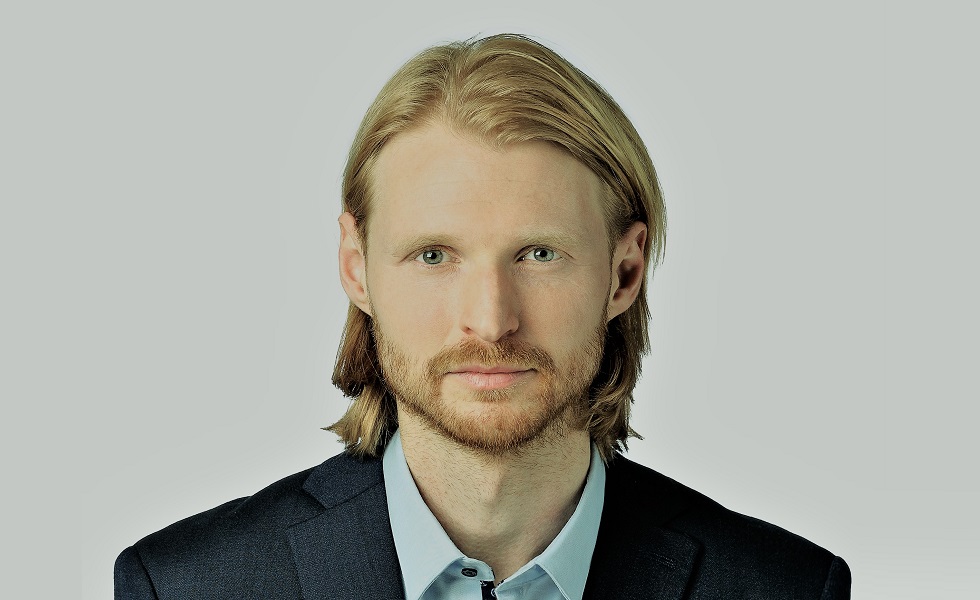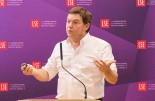Joeri de Wilde: Social security cannot be reconciled with our growth addiction
Joeri de Wilde: Social security cannot be reconciled with our growth addiction

This column was originally written in Dutch. This is an English translation.
By Joeri de Wilde, Senior Economist at Triodos Investment Management
Many voters will vote on November 22 with an eye on their social security. It would be good if they realized that this does not go hand in hand with our current economic addiction to growth.
In the run-up to the elections for the Dutch House of Representatives, social security is the main theme of the campaign. This is a relatively new concept for us Dutch and therefore there is a need for clarification. The financial and economic figures have been flying around our ears lately, often accompanied by the conclusion: it's not all that bad. But by zooming in on numbers like this, we miss the big picture. The uncertainty about our existence is clearly visible.
According to the figures, things are going well
A look under the hood of the Dutch economy is a logical first step in the search for increased uncertainty. What condition are the most important parts in? An overview in the Volkskrant shows the figures of this inspection for poverty, flexible work, savings, payment defaults and dental visits. These figures show that things are certainly not worse in these areas than they were ten years ago. Maybe things are even better. A similar message could also be read in the NRC: contrary to what people think, the difference between rich and poor has actually decreased, judging by the figures.
One of the pain points with these types of analyzes is that they are based on cross-sections and averages. Viewed in this way, for example, inequality has indeed become smaller, because most Dutch households are homeowners. It is precisely the house prices of cheaper homes that have risen the most in percentage terms. But these types of figures do not capture the real pain, which shows that the absolute wealth of renters and homeowners is increasingly diverging.
Yet something is wrong
In addition, uncertainty certainly appears to have increased not only among those overlooked by the figures. The uncertainty is much more widespread. That is of course not surprising, because the climate crisis, the corona pandemic and various international conflicts have not made the world safer. This has also been evident from the Edelman Trust Barometer for years. In addition to concerns about the future financial and economic situation, class inequality and a lack of leadership have led to declining confidence in the government.
Here a contrast emerges between the current financial and economic state and confidence that this standard of living will continue to be sustainable in the future. That the next generation will be better off than the current one is no longer a generally accepted notion.
We live on credit
Admittedly, the Dutch House of Representatives has ensured that the average household has not deteriorated with several enormous support packages in recent years. In response to the pandemic and the energy crisis, money seemed to be no object. But voters are probably increasingly sensing that these stopgap measures do not provide a solid basis for a stable future. We have to pay back all that borrowed money at some point. And the forecasts for future economic growth in the aging Netherlands are anything but rosy.
The moment for hard choices is therefore getting closer, in a system that lives on credit. Because the climate crisis alone requires enormous investments. The IMF described these hard choices for governments in its recent economic outlook as a 'policy trilemma': a choice between climate goals, a sound budget policy and political feasibility. According to the IMF, all three are not possible, one of the three must be sacrificed at the expense of the other two.
Kicking growth addiction is the only option
The IMF is of course implicitly stating that we cannot continue to assume strong economic growth. If this were the case, this trilemma would play less of a role. Substantial climate investments would then be possible by continuing to borrow heavily, and it would not be necessary to take that money elsewhere. But due to the expected low growth of the rich countries in the short and longer term, we have to choose.
This choice seems to me to be a simple one: climate goals are essential for our future, as is a sound fiscal policy. Major investments in sustainability, without borrowing too much from future generations. This is of course very politically sensitive, because it means going against established interests. But this ultimately benefits the livelihoods of households. It is up to politicians to convey this message as clearly as possible. So that voters who vote for social security do not end up with a party that represents the vested interest.










